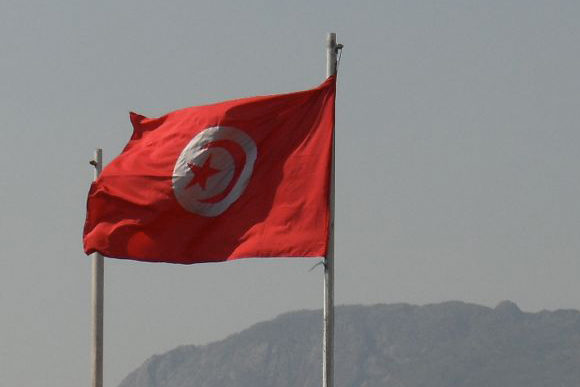
Tunisia: Judicial Council law declared unconstitutional, meaningful revision must follow
The ICJ today welcomed the decision of a Tunisian constitutional commission declaring a new law on the High Judicial Council (HJC) to be unconstitutional

The ICJ today welcomed the decision of a Tunisian constitutional commission declaring a new law on the High Judicial Council (HJC) to be unconstitutional
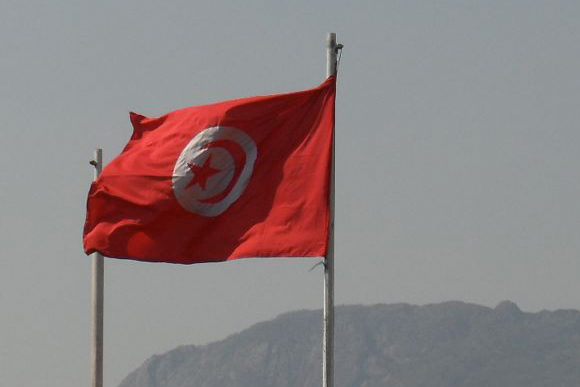
La CIJ s’est félicitée aujourd’hui de la décision d’une commission constitutionnelle tunisienne déclarant la nouvelle loi sur le Conseil supérieur de la Magistrature (CSM) inconstitutionnelle.
La CIJ a appelé en outre les autorités à saisir cette opportunité pour amender cette loi, la Loi Organique No. 16/2015 sur le CSM, afin de la mettre en pleine conformité avec les standards internationaux sur l’indépendance judiciaire.
Contact:
Theo Boutruche, Conseillé juridique à la CIJ pour le Moyen Orient et l’Afrique du Nord, tel: +96 170 888 961, e-mail: theo.boutruche(a)icj.org
Tunisia-Constitutionality of HJC law-News-Pressreleases 2015-FRE (Communiqué de presse complet en PDF)
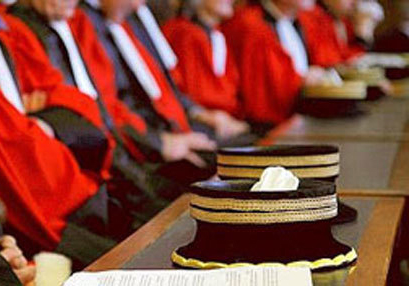
The ICJ today called on the Tunisian President to refrain from promulgating Organic Law No. 16/2015 on the High Judicial Council (HJC), and urged the Tunisian authorities to act to reform the deeply flawed articles of the law in full compliance with international standards on judicial independence.
The ICJ is deeply concerned that the law, which was approved by the Assembly of People’s Representatives on Friday 15 May, falls far short of international standards on judicial independence, in particular the provisions relating to the composition, independence and competencies of the HJC.
Of particular concern is the fact that the law does not provide for the HJC to consist of a majority of judges who are elected by their peers; does not provide for the HJC to be meaningfully involved in determining and ensuring sufficient budgeting for the judiciary; and does not adequately guarantee the security of tenure of judges, including by allowing for judges to be transferred without their consent for a maximum of three years.
The law also grants the Minister of Justice sweeping powers over the Judicial Inspection Service and over the commencement of disciplinary proceedings.
The ICJ is concerned that the drafting process of the law has failed to meet basic principles of inclusive participation and transparency.
Stakeholders, including professional associations of judges and civil society organizations, were not given the opportunity to provide their inputs or to meaningfully comment on the drafts.
“If promulgated, Law No. 16/2015 would perpetuate some of the provisions and practices that undermined judicial independence in Tunisia for decades, including by allowing for the Minister of Justice to initiate disciplinary proceedings against judges,” said Said Benarbia, Director of the ICJ MENA Programme.
“The Tunisian President must refrain from promulgating this law and initiate an inclusive process to draft a new law that unequivocally ends executive interference in judicial matters and empowers the HJC to oversee all issues relating to the judiciary, including judicial administration and the career of judges,” he added.
Contact:
Theo Boutruche, Legal Adviser, ICJ Middle East and North Africa Programme, t: +96 170 888 961, e: theo.boutruche(a)icj.org
Tunisia-Tunisian Law on HJC-News-Press Release-2015-ARA (press release in Arabic, PDF)
Tunisia-Tunisian Law on HJC-Advocacy-Position Paper-2015-ENG (position paper in English, PDF)
Tunisia-Tunisian Law on HJC-Advocacy-Position Paper-2015-ARA (position paper in Arabic, PDF)
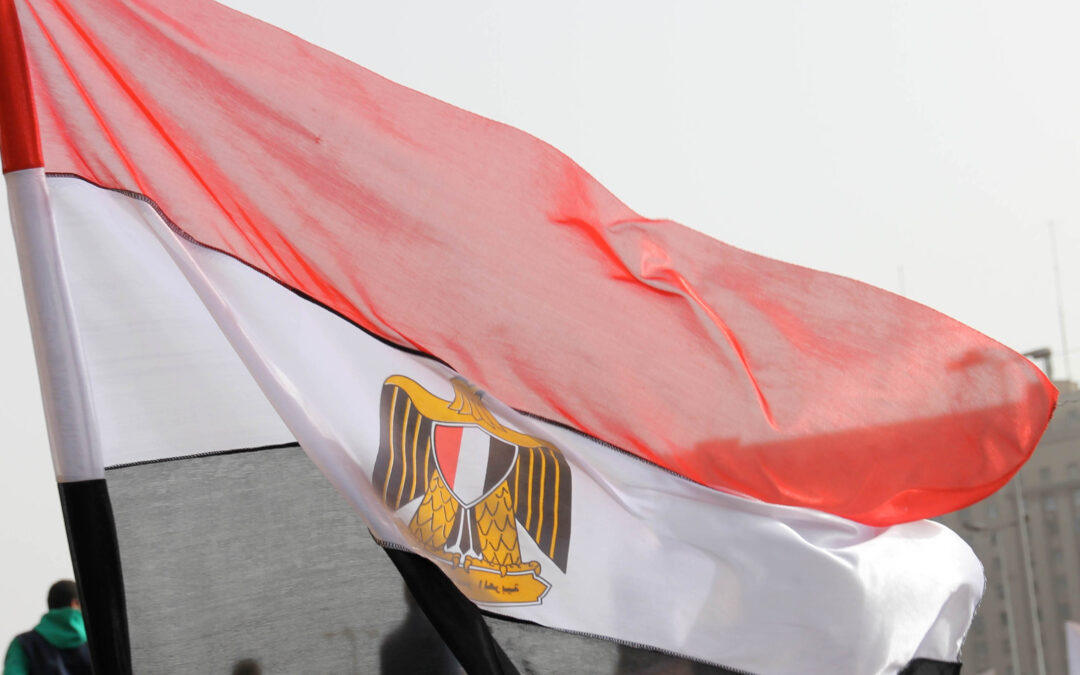
The ICJ condemns ongoing egregious human rights violations, including the right to life by the Egyptian authorities and facilitated by unfair judicial proceedings.
Yesterday, six men were executed following their conviction in an unfair trial by a military court and confirmation of the death sentences by the President of the Republic, Abdel Fatah Sissi, on 24 March 2015.
The men were part of a group of nine individuals accused of participating in attacks on security services and killing two officers of the armed forces on 19 March 2014.
Their conviction through military proceedings violated their right to a fair trial by a competent, independent and impartial tribunal.
Military court judges in Egypt are appointed by the Minister of Defense and are subject to military discipline procedures. By the very constitution of this court, in addition to by the manner in which the trial procedures were conducted, the defendants were denied the right to a fair trial under international standards.
All of the accused alleged that they had been subjected to torture and other ill treatment, as a result of which one of them was reported to have suffered a broken thigh and fractured knee.
Rights of defence were undermined, including the ability to have confidential access to a lawyer.
Furthermore, three of the accused were reportedly already in detention at the time the attacks they were convicted of participating in took place.
The executions came just a day after the decision on 16 May by the Cairo Criminal Court to recommend deaths sentences for more than 120 accused persons, including former President Morsi.
The cases have been referred to the mufti, the highest official religious authority in Egypt for confirmation.
This decision relates to two separate cases in which the accused, including Mohamed Morsi and other senior officials from the Muslim Brotherhood, were convicted of numerous charges.
These include, “murder”, “carrying out acts that compromise the independence of the country”, “abduction of police officers”, “collusion with a foreign organization to carry out terrorist activities in Egypt” and “carrying heavy weapons to resist the Egyptian state”.
The criminal proceedings that led to Saturday’s verdict follow grossly unfair trials.
The ICJ considers that in the trial and sentencing the defendants, the Egyptian authorities have acted in breach of Egypt’s obligations under international human rights law, including those relating to the right to life, the prohibition of torture and other cruel, inhuman or degrading treatment or punishment, and fair trial rights.
Many of the accused were denied access to counsel during detention, with some of them held incommunicado for months. Mohamed Morsi’s whereabouts were unknown from 3 July 2013 to November 2013.
The accused’s defence rights were largely undermined, including by curtailing the right to call and examine witnesses.
Further, during the entirety of the proceedings, prosecutors failed to provide substantial and credible evidence to support the charges against the accused, relying heavily on police and intelligence reports.
Reviewing numerous judgments issued in the context of similar mass trials resulting in death sentences, the ICJ has found a systematic failure of the courts to establish the individual guilt of each accused based on credible evidence.
Saturday’s judgment appears to continue this trend.
Further, under Egyptian law, decisions of felonies courts are not subject to appeal.
They can only be challenged before the Cassation Court, which does not look at the merits of the case but rather only the proper application of the law by lower courts.
“The imposition and execution of death sentences following such grossly unfair trials amount to a summary execution, a serious crime under international law,” said Said Benarbia, Director of the ICJ Middle East and North Africa programme.”
“Rather than contributing to serious human rights violations, Egyptian judges should preserve the dignity of their office and act in defence of the rule of law and human rights, not as a tool of repression,” he added.
The ICJ opposes the use of the death penalty in all circumstances as a violation of the right to life and a form of cruel, inhuman and degrading punishment.
The African Commission on Human and Peoples’ Rights has called on Egypt recently to refrain from carrying out the death penalty as it amounts to a violation of the right to life.
The UN General Assembly has repeatedly, by a large majority, called for a moratorium on its use.
Contact:
Alice Goodenough, Legal Adviser of the ICJ Middle East and North Africa Programme, t: +44 7815 570 834, e: alice.goodenough(a)icj.org
Nader Diab, Associate Legal Adviser of the ICJ Middle East and North Africa Programme, t: +41 229 793 804, e: nader.diab(a)icj.org
Egypt-Executions and mass death sentences-News-Press releases-2015-ARA (press release in Arabic, PDF)
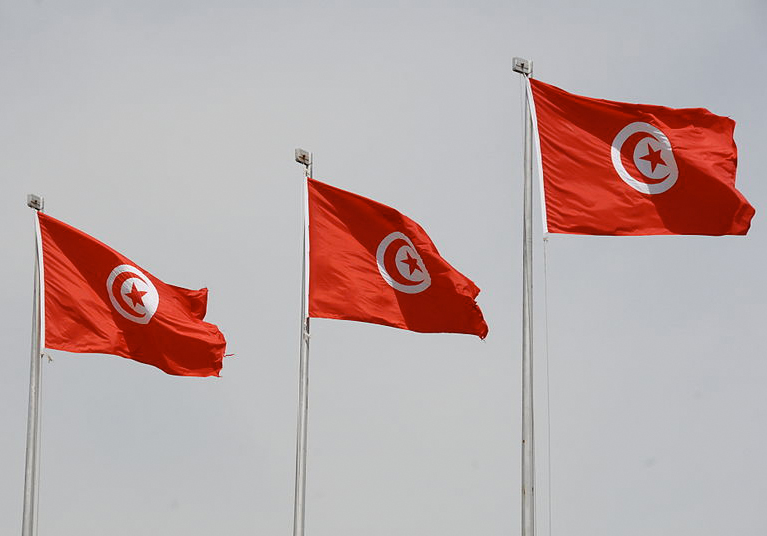
Provisions on State secrecy and “denigrating” security forces undermine free speech, the ICJ and 12 other rights organizations say.
The ICJ today joined 12 international organizations calling on the tunisian authorities to amend a controversial new Security Bill inconsistent with international standards, especially provisions that could criminalize the conduct of journalists, whistleblowers, human rights defenders, and others who criticize the police and that would allow security forces to use deadly force when it is not strictly necessary to protect lives.
Download the full statement:
Tunisia-Security Bill joint statement -News-Press releases-2015-ENG (PDF, English)
Tunisia-Security Bill joint statement -News-Press releases-2015-ARA (PDF, Arabic)